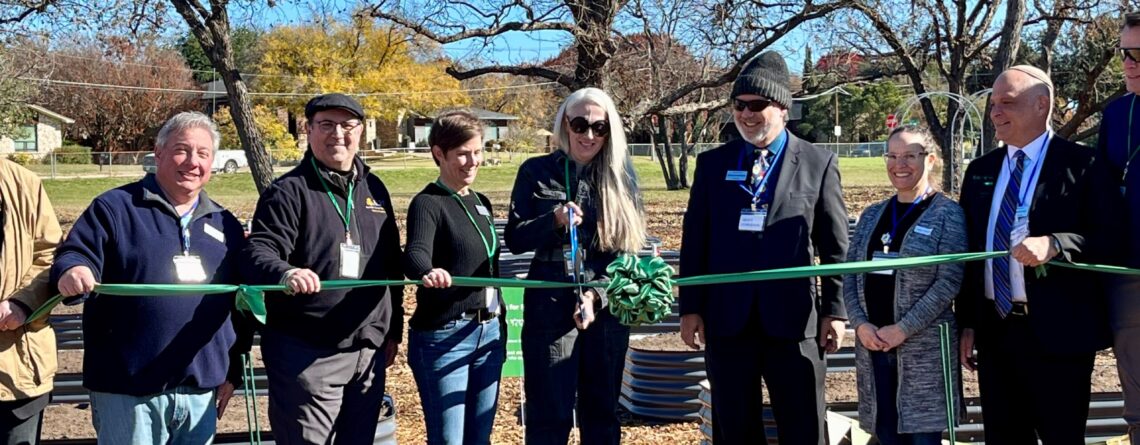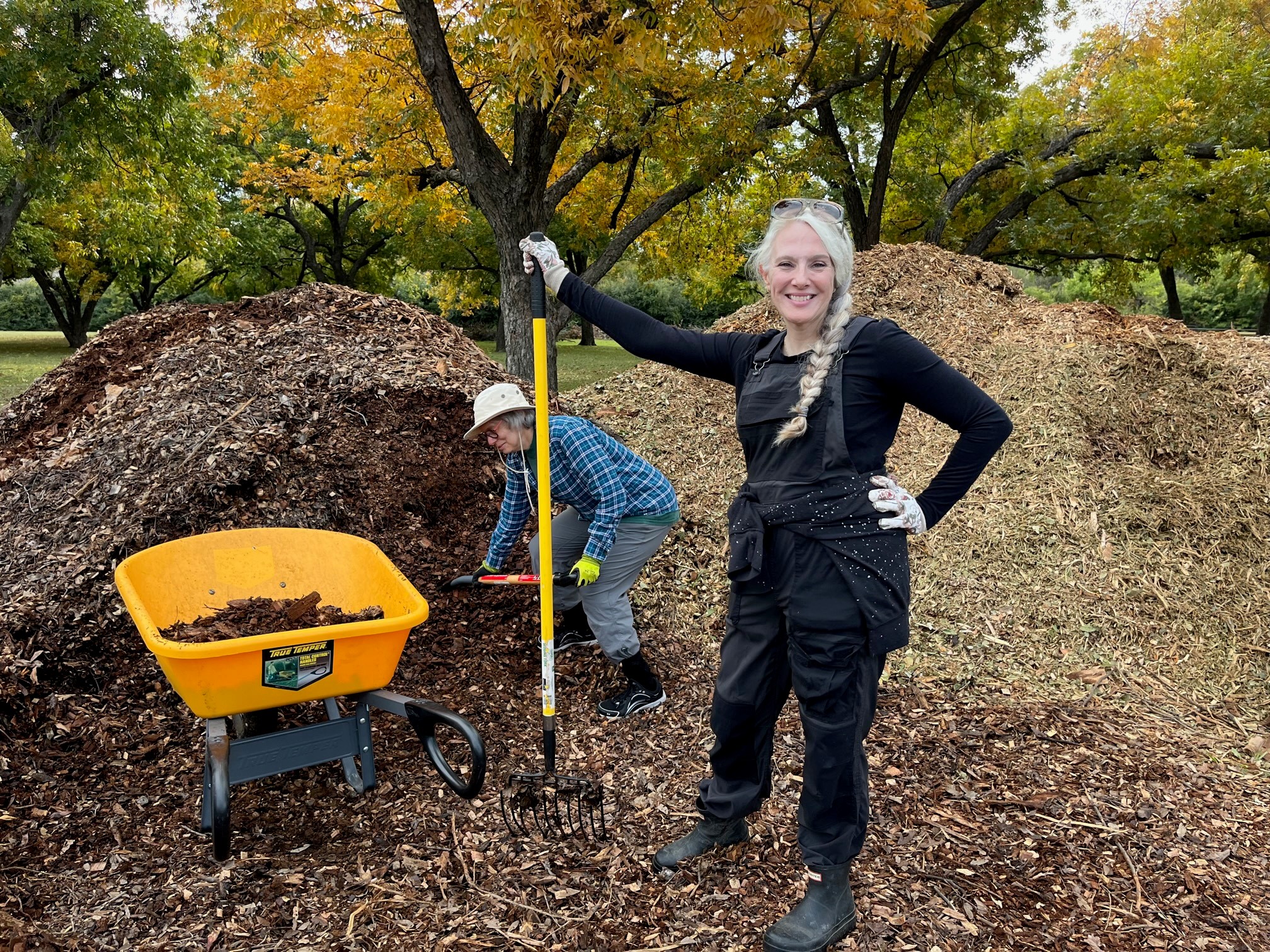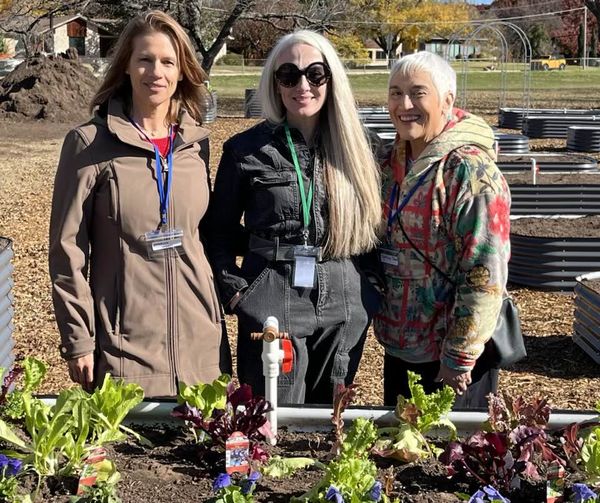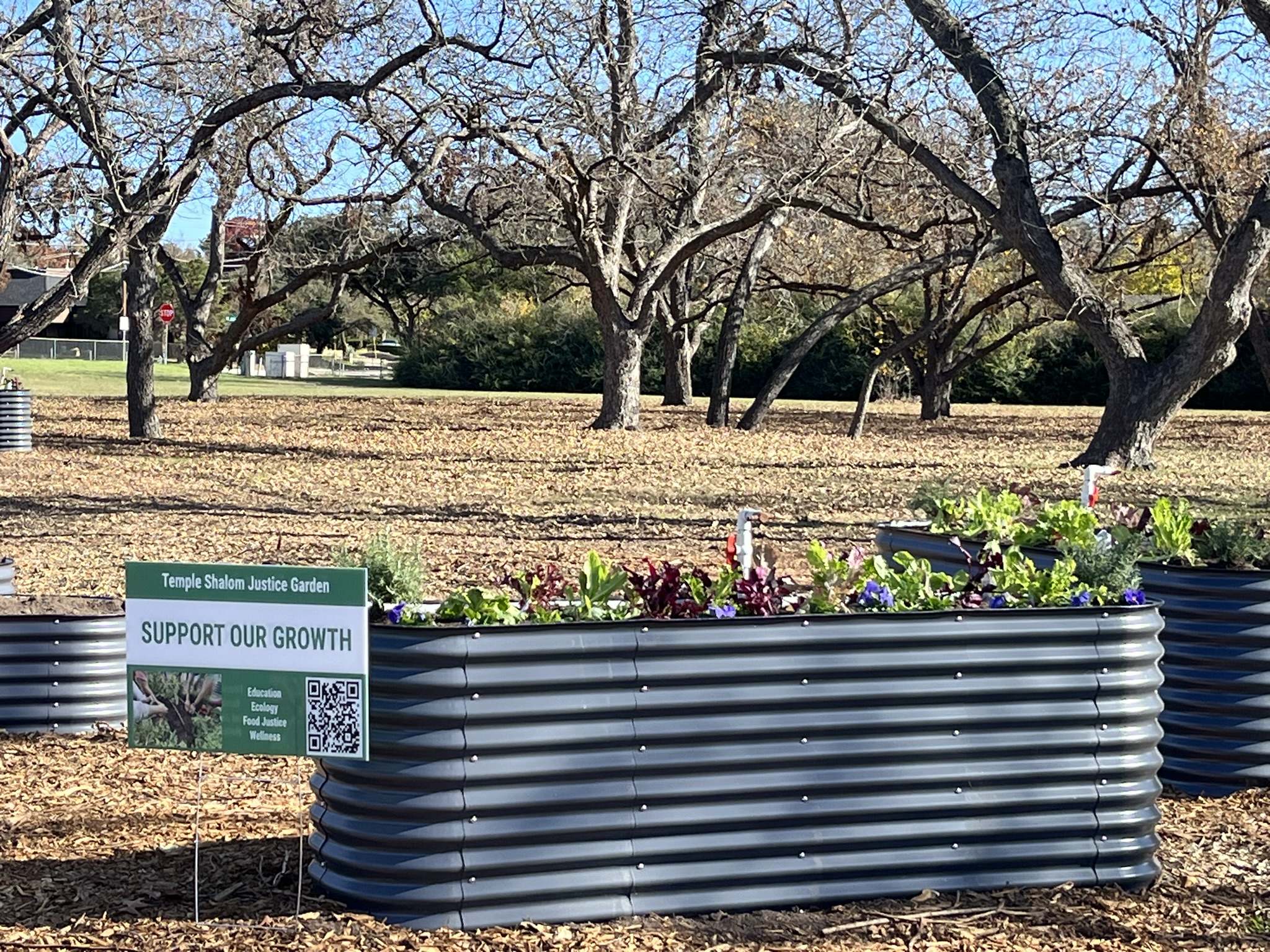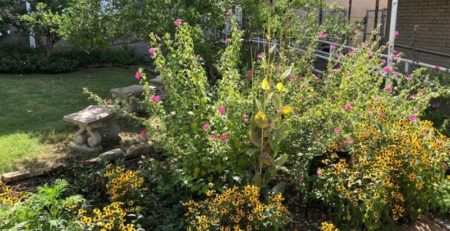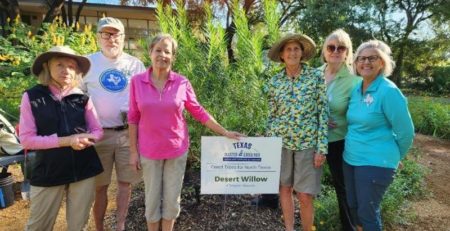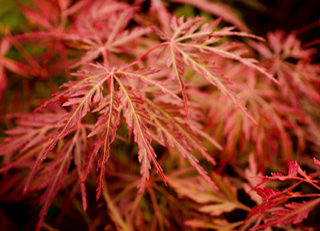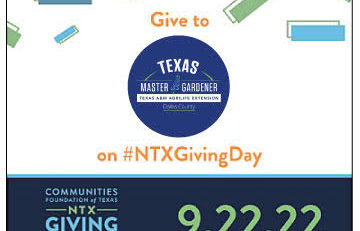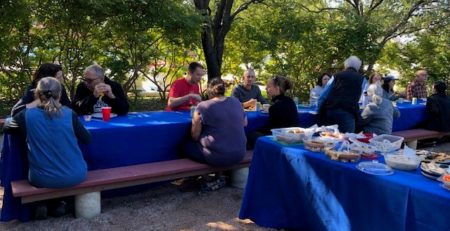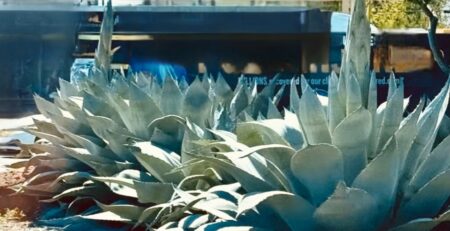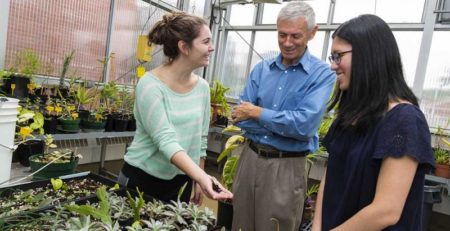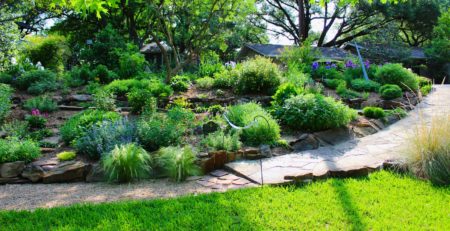Temple Shalom Justice Garden Shines
Temple Shalom is a small synagogue community in North Dallas committed to improving food security and healthy living. Collaborating with the Kraus Foundation, the U.S. Department of Agriculture (USDA), the Natural Resources Conservation Service (NRCS), and the People’s Garden Initiative, they built 56 raised beds, which were dedicated on December 10th, with 200 celebrants in attendance.
The synagogue’s incredible garden team is co-chaired by Stuart Marcus, Karen Stock and Dallas County Master Gardener (Class of 2022) Gretchen Reynolds. They focus on ways to benefit the community by using their landscape to change the bigger landscape in area neighborhoods and the City of Dallas. The garden creates positive change in Education, Ecology, Wellness, and Food Justice as follows:
Education: As we all must do, the garden team refused to be a passive observer of hunger and hate. They concentrated on learning to nurture the soil, grow food, and care for the community by turning education into action.
Ecological Justice: The garden landscape is used to create an island of ecological health, healthy soil, wildlife habitat, and a Certified Monarch Waystation. The space is free of synthetic chemicals, and harmful agricultural practices. Even in the face of a species collapse and climate uncertainty, the garden acts towards justice for our planet and neighborhoods.
Wellness: The team focuses on health, nutrition, and wholeness. Scientific research demonstrates that when we spend time together outdoors, we feel better, healthier, and happier. Temple Shalom will have a series of nutritional programs beginning in the Spring of 2024. The DCMGA website (https://www.dallascountymastergardeners.org) will list these on the event calendar.
Food Justice: The garden produce will contribute to food justice by providing healthy produce and decreasing the need for harmful “junk” food. The raised beds will grow whole organic food for donation to those who are food insecure and those without access to fruits and vegetables grown in healthy, regenerative soil.
Temple Shalom garden will continue to seek food justice for all communities. In acts of justice, we can create positive changes that are rooted in love, kindness, and dignity. All of us should choose to do something about the world’s problems – one just act and one garden at a time.
Zandra Faris, 2013 DCMG
Cynthia Jones, 2013 DCMG
Gretchen Reynolds, 2022 DCMG

